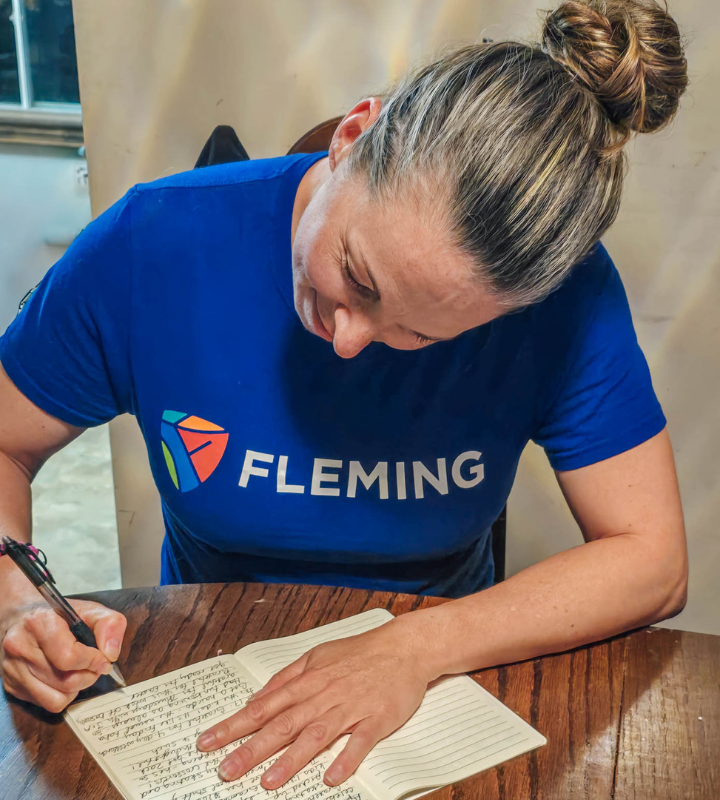A Little Gratitude Goes a Long Way: Studying the Science of Gratefulness at Fleming College

What if something as simple as writing down three things you’re grateful for each day could improve your mood, increase your motivation, and make daily life feel more meaningful?
Dr. Taryn Grieder set out to answer that very question.
A faculty member in Fleming College’s School of General Arts and Sciences, Dr. Grieder partnered with Kim Sargent, Director of Canadian Family Health Counselling, to explore the benefits of daily gratitude journaling—both in college students and health counselling clients.
Over four weeks, 67 participants completed a daily gratitude journaling exercise, writing down at least three specific things they were grateful for. It could be as small as a hot cup of coffee, a walk in the sunshine, or an unexpected kind word. Participants completed a Mental Health Quality of Life (MHQoL) questionnaire before and after the journaling period, measuring factors such as mood, optimism, relationships, and engagement in daily activities.
The results? Participants reported increased optimism, improved self-image, better emotional stability, and greater satisfaction with their daily activities. Many noticed a shift in how they experienced everyday moments—seeing more good, even during challenging times.
One participant shared, “This was life-changing! I now find myself looking for and noticing the good things to add to my journal… Instead of having a negative outlook, it’s changed to positive and optimistic.”
As the project demonstrated, this low-cost and easy-to-implement strategy could have real potential in mental health counselling and wellness support. The team is already looking at next steps—testing different journaling formats, evaluating long-term effects, and exploring the impact on different populations.
Dr. Grieder brings her background in neuroscience and education to this project, blending rigorous research with practical mental health solutions. And thanks to a strong partnership with Canadian Family Health Counselling, this project has already made a meaningful difference for its participants.
This project was funded by the Natural Sciences and Engineering Research Council of Canada (NSERC) through Fleming College’s iGRO (Internal Grants for Research Opportunities) program.
Fleming’s Office of Applied Research & Innovation
Want to learn more about how applied research at Fleming is shaping real-world solutions? Follow the Office of Applied Research & Innovation on LinkedIn and Instagram.